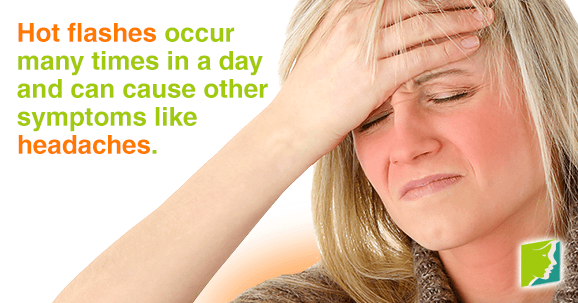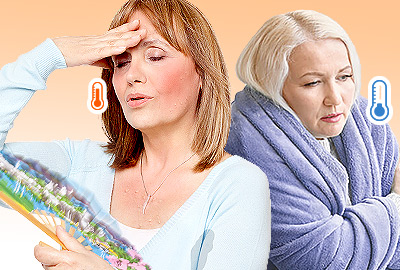Depending on their intensity, hot flashes can be accompanied by headaches, weakness, dizziness, and nausea. Both hot flashes and their additional symptoms can come on fast and unexpectedly.
One of the most common side effects of menopause are hot flashes and headaches. Headaches can disrupt daily life, and if they become persistent, they can also affect one's overall health.
Read more below to find out about headaches and hot flashes.
Understanding Hot Flashes
Most women experiencing menopause have mild to moderate hot flashes, while 10 to 15% of women experience severe symptoms.
During menopause, the body is adjusting to fluctuating levels of hormones. Hot flashes are caused by the body miscalculating its internal temperature and then heating the body up to adjust. This can often occur many times in a day and cause other stress-related symptoms like headaches.
Keep reading to learn about the triggers of hot flashes.
Avoiding Triggers of Hot Flashes and Headaches
There are many measures you can take to help ease the amount and intensity of hot flashes. One useful measure is to avoid situations or things that may cause a hot flash episode. Here is a list of common triggers or things that can set a hot flash off:
- Smoking
- Spicy food
- Hot food
- Hot tubs and saunas
- Hot showers
- Caffeine
- Warm environments
- Alcohol
- Diet pills
Each women has different triggers or is affected by triggers at different intensities, so it's important to keep a record of what you were doing and eating before a hot flash so that you can identify your personal triggers.
There are also several triggers that may specifically cause headaches, such as:
- Dehydration
- Too much or too little sleep
- High stress levels
- Poor posture
- Heavy perfumes and strong smelling chemicals
- Grinding you teeth (especially while asleep).
- Bright lights
- Sudden air pressure changes from bad weather
Tips for Reducing Headaches and Hot Flashes
Certain techniques and habits have been known to reduce the amount and severity of hot flashes and headaches. Here is a short list of some of the most common:
- Take a cool shower before bed
- Dress in layers, so you can peel off one layer after another as you get warmer
- Don't wear wool or synthetic fibers. Cotton, linen, and rayon are good options
- Opt for open-neck shirts instead of turtle-necks
- Keep ice water at hand that you can sip to cool down
- Lower the ambient temperature. Either use the thermostat or a small fan to keep cool
- Use cotton sheets, which breathe better than synthetics
- Get a bigger bed to have space between you and your partner
- Roll down the car window when on the road
Treatments for Headaches and Hot Flashes
The treatments for headaches and hot flashes might be as simple as stopping what you are doing, relaxing, or taking a nap. The body is going through a difficult time and is demanding a lot of itself. Making sure the body is not overwhelmed is the first thing to do.
Exercising regularly and eating a healthy diet is key in maintaining general fitness, of both body and mind. This can help improve its resilience against menopause symptoms. Alternative medicines, including acupuncture, vitamins, and herbal supplements have been known to reduce stress and restore hormone levels.
If you are experiencing pain or feel that something is wrong, you should talk to your doctor, who can help you find a solution. Explore the following link for more information on treatment for headaches and hot flashes.
Sources
- Sikon, Andrea and Holly Thacker M.D. "Treatment for Menopausal Hot Flashes". Cleveland Clinic Journal of Medicine. July 2004: 71 (7).
- "Hot flashes ... in January". Canadian Medical Association Journal. 2004: 170 (1).
- Miller, Heather and Rose Maria Li, M.D. "Measuring Hot Flashes: Summary of a National Institutes of Health Workshop". Conference report. Mayo Clinic. June 2004: 79.
- National Health Service U.K. (n.d). 10 headache triggers. Retrieved on July 22, 2015 from http://www.nhs.uk/Livewell/headaches/Pages/Headachetriggers.aspx



